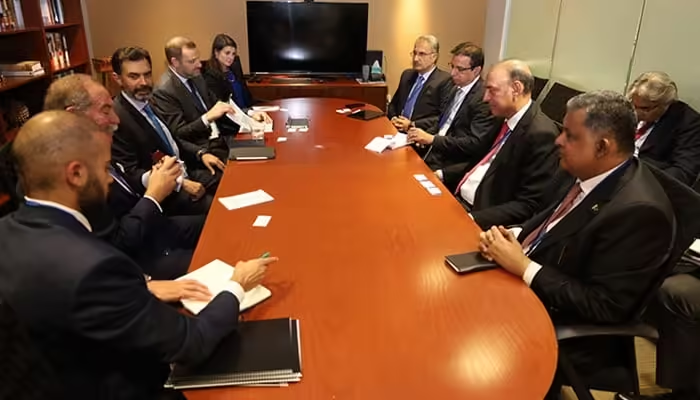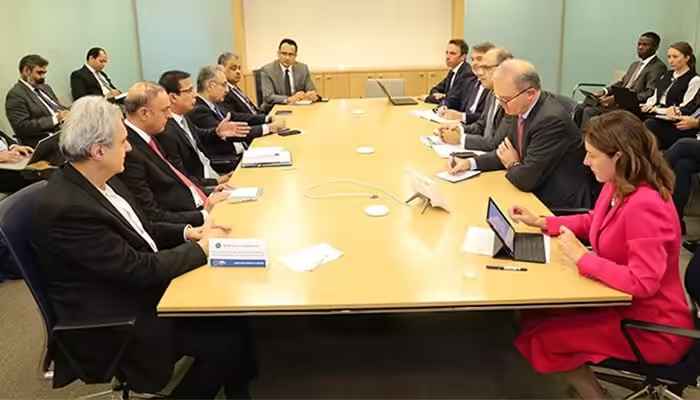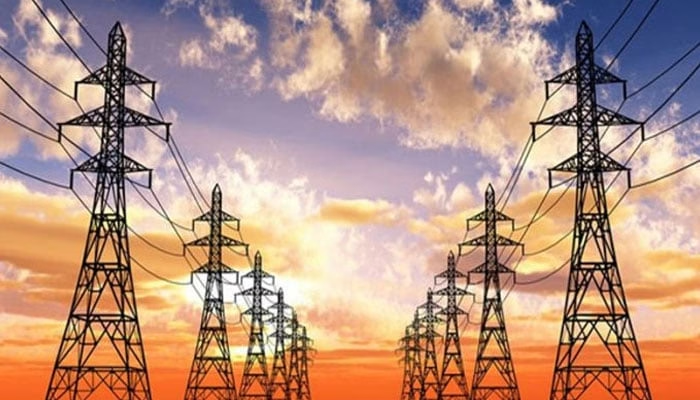In a series of high-level meetings held in Washington, D.C., the Pakistani delegation, led by Secretary Finance Imdadullah Bosal and Governor State Bank of Pakistan Jameel Ahmad, engaged with leaders from the International Monetary Fund (IMF) and the World Bank to discuss financial stability and reforms. The delegation highlighted Pakistan’s efforts to ensure economic recovery, implement structural reforms, and pursue international funding for climate-related initiatives.
The Pakistani representatives met with senior officials of the IMF and World Bank during their annual meetings, underlining the country’s commitment to stabilizing its economy and continuing on the path of fiscal reform. These meetings, which took place amidst global concerns over climate change and economic volatility, were crucial for Pakistan, especially as the country continues to navigate the challenges of inflation, fiscal deficits, and external debt.
Meetings with IMF and World Bank Leaders
In a key meeting with the IMF’s Director for Middle East and Central Asia, Jihad Azur, the Pakistani delegation expressed gratitude for the IMF’s continued support, especially for the recently approved $7 billion Extended Fund Facility (EFF) that is aiding Pakistan’s economic stability. Secretary Finance Imdadullah Bosal and Governor Jameel Ahmad briefed the IMF officials on the government’s efforts to boost revenue growth, implement energy reforms, and overhaul public institutions. They emphasized that these reforms are pivotal to transitioning Pakistan from a state of financial stability to sustainable development.
The discussions also involved Pakistan’s future steps to increase fiscal resources by broadening the tax base. Among the key proposals was the harmonization of provincial agricultural income tax with federal tax laws, aimed at addressing the structural imbalances in the tax system. The delegation assured IMF officials that Pakistan is focused on balancing subsidies and reducing energy prices, while working towards a more efficient and smaller government.
Jihad Azur congratulated Pakistan on the successful launch of the fund program and stressed the importance of continuing reforms to ensure long-term economic stability. He acknowledged the efforts of the Pakistani government and emphasized the need for consistency in policy implementation, especially given the volatile global economic climate.
Alvarez & Marcel: Restoring Capital Market Access
In another important session, the Pakistani delegation met with the representatives of Alvarez & Marcel, led by Dr. Raza Baqir, the former Governor of the State Bank of Pakistan. The meeting was centered around restoring Pakistan’s access to domestic and international capital markets, a critical step for improving liquidity and ensuring access to external lenders. Dr. Baqir, who is well-versed in Pakistan’s financial challenges, engaged with the delegation on strategies to address these concerns.
Given the limited access to international financing, restoring confidence in Pakistan’s fiscal policies and capital markets is vital. The delegation expressed their resolve to work with international financial institutions and stakeholders to improve investor confidence. They also stressed the importance of external support in helping Pakistan navigate its current financial situation.
$2 Billion Climate Financing Request
Another significant topic of discussion was Pakistan’s decision to reapply for climate financing from the IMF, with a request for $2 billion. This financing is intended to support the country’s efforts to mitigate the impact of climate change, an issue of growing concern for Pakistan, which has been heavily affected by floods and other natural disasters in recent years.
Sources confirmed that Finance Minister Mohammad Aurangzeb, who was scheduled to attend the meetings in Washington, would make a formal request for the $2 billion from the IMF. The fund is part of the IMF’s broader Resilience and Sustainability Trust, which focuses on helping countries deal with long-term challenges like climate change. The Pakistani delegation also discussed broader environmental stability measures and the role of the private sector in sustainable development during their meetings with IMF officials.

Focus on Private Sector Development and Environmental Stability
The discussions with IMF leaders also covered the need to accelerate private sector development in Pakistan. As the country aims to achieve sustainable economic growth, the private sector is expected to play a critical role. Steps to reduce regulatory burdens, improve the ease of doing business, and create an environment that fosters innovation and investment were key topics of conversation.
The delegation highlighted Pakistan’s intention to leverage IMF funds to support environmental sustainability projects. The country has been increasingly vulnerable to the adverse effects of climate change, and building resilience against future disasters is a top priority for the government. The Resilience and Sustainability Fund, which the IMF launched, was discussed as a potential tool for addressing environmental and financial risks in Pakistan.
Looking Ahead: The Finance Minister’s Role
As Finance Minister Mohammad Aurangzeb arrived in Washington to join the ongoing meetings, he was scheduled to meet with various officials from the IMF, the World Bank, and the U.S. State and Treasury Departments. The meetings are crucial, as the finance minister will be making Pakistan’s case for climate financing and discussing the country’s progress on financial reforms.
According to sources, the finance minister will formally request $2 billion from the IMF to support Pakistan’s climate resilience efforts. This financing is expected to bolster Pakistan’s resources in dealing with environmental challenges, which have significantly impacted the country’s economy. Minister Aurangzeb is expected to return to Pakistan by the end of the week after attending these critical sessions.
The series of meetings between the Pakistani delegation and leaders of the IMF and World Bank underscores Pakistan’s ongoing efforts to achieve economic stability and secure international financial support. With the potential $2 billion in climate financing, the government aims to address both financial and environmental challenges. However, the road ahead will require continued focus on reforms, fiscal discipline, and collaboration with international partners to ensure long-term success.



